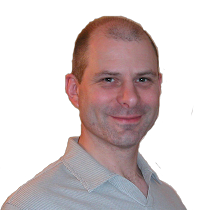In essence, the 4 month programme consists of:
Month 1 - get to know each project and the people, bring them all together to network, confirm the aims for each project and how they will know when they've reached these aims.
Month 2 - coaching to ensure each project is collecting evidence to show they are progressing
Month 3 - coaching to report the evidence and demonstrate impact and cost/ benefits
Month 4 - practice session (as a workshop) with commissioner representatives who can say "when you show that, it makes us feel you're really going to contribute. When you show that, it doesn't add any value"
For this blog I'm presenting the outline of the Month 1 workshop
Aims of the workshop
recognise that development grants are exactly that - development. At the end of a development grant the project should have approached commissioners of services for sustainable funding based on delivery of a specific service
recognise you are not alone - others are in the same place
set milestones:
- agree everyone's understanding of AIMS,
- what success looks like,
- how you can measure this,
- the mechanics of collecting measures
Timing and Agenda
10:00 meet, refreshments, networking
allows people to go into the office first if they must, time to catch breath, sit in groups with their project, get things off their chest
10:30 each project has 5 minutes to introduce themselves and explain what the project does
everyone finds out what every project is about in a structured manner, with no interruptions as there will be plenty of time for feedback and questions through the day.
structure of presentation is:
- name of project
- people presenting at the workshop
- objectives
- successes
- barriers
- National Indicators to achieve
- demonstrating value for money
- dividing a finite pot of money between competing priorities and competing providers
- the must-do (delivering core services) vs the nice to (most of the innovation is not core services)
gets everyone to the same understanding of the issues, gives people a bit of time to digest what they have heard about each project and who they will want to network with afterwards
12:00 refreshments and networking time
can ask questions on the last session, but also talk to projects facing the same issues as your own
13:00 in groups of 2 – 3 projects, each project focus of attention for 30 mins or so, focus on
- their own achievements
- outcomes and measures
- process for gathering measures
- actions and timetable
as each project is focus of attention, the other projects in their group help them to understand what they have actually achieved (people often miss the most obvious achievements as we assume they are “normal” or “not important”). Facilitators support the group deciding what are the outcomes they wish to measure and how to measure them; the final outcome of this section should be for each project to have an action plan both for connecting with the most likely sources of funds and talking about what they have achieved, and a plan to assemble the evidence to illustrate these achievements
Break part-way through to share feedback and "borrow" ideas, drinks/refreshments
2:30 feedback from tables (what was difficult, how difficulties were overcome, next steps for each project)
some of the best feedback is from an independent peer. Sometimes you don't present the best things you are doing because they seem "normal" to you; other times the obvious solution may be so big that you can't see it right in front of you. By making each project centre of attention we got really powerful input from credible people (people in the same situation)
3:00pm what support is now available to selected projects:
- Follow up action plan after 4 weeks (1-2-1 facilitator plus project) – from deciding measures to collecting measures
- Next coaching session after another 4 weeks – using the information collected to make a story which illustrates the impacts and benefits both anecdotally (selected case studies) and quantitatively (how many, how much, how effective)
- Next workshop 3 months after the first – networking and sharing what you learnt; presentation to a panel of experienced advisors who will say what they like, what they want to see more of, what isn’t relevant to funding bodies. All projects will form the audience for these presentations so all can learn from the advice given to each project. Consolidation of the feedback given
- Note a key component of any business case is the information presented – does it meet the priorities of the potential funding body and does it illustrate that you are competent and likely to deliver on your promises. This applies whether the presentation is in written form, in person, or in any number of other ways
3:30 workshop closes
this structure partly works because it allows people to talk to people in the same situation. It isn't a "teacher-pupil" relationship where the presenter "tells" everyone and they either do it or they don't; people have time to get comfortable with their peers before receiving input and we got fantastic results really quite quickly.Facilitators are needed to deal with queries and to keep time - moving projects on when their 5 minutes (at the start) or 30 minutes (during discussion) were up, and explaining what was expected at each stage in the form of outputs.
Clear explanations and guidelines are vital to get people away from what they perceive are their priorities - typically the things that keep them awake at night (and often not the real priorities at all). Provide a clear structure and expectation and people will be really creative and productive
I hope you find this interesting and fun to do. Third Sector and Public Sector work is brilliant because people aren't really in competition with each other and are so generous with sharing and contributing - Hugo

No comments:
Post a Comment